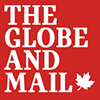.jpg)
Medical residents in Canada are often burdened with significant student debt and have little available time to manage it. ISTOCKPHOTO.COM
FINANCIAL CARE FOR MEDICAL RESIDENTS
Specialized advice and support helps ease the financial load of hospital training
By 6:45 a.m., Lydia Guthrie is making her ward rounds at Regina General Hospital. As a first-year obstetrics and gynecology medical resident, her workday might stretch to 24 hours if sheʼs on call, leaving little time for meal preparation, exercise or seeing friends.
“It’s a grind, for sure, but you get used to it and get into a good rhythm,” she says.
On top of her full schedule, Dr. Guthrie, like most medical residents in Canada, has a student debt totalling hundreds of thousands of dollars. A Canadian medical graduate can expect to accumulate debt of about $100,000, according to a 2018 questionnaire by the Association of Faculties of Medicine of Canada. For some, it’s more than $200,000. After living expenses, Dr. Guthrieʼs first-year residency salary of about $56,000 barely allows her to make a dent in the money she owes.
When she began medical school a little over five years ago, Dr. Guthrie needed financial support to cover more than just tuition — she also had other related costs, including textbooks and living expenses. She says without this financial support, it would have been almost impossible for her to attend school, let alone accommodate all the life changes that come along with a residency.
Dr. Guthrie says it was great knowing she could access financial support and advice. “I think very few people could just pay out of pocket.”
Her move to Saskatchewan for her residency was the third for the 27-year-old — she grew up in the North West Territories and then went to medical school at the University of Northern British Columbia. Her residency not only meant uprooting her life, but her husband’s too. A carpenter, he had to take a less-senior position in the field and a subsequent pay cut to move with her, stretching their finances further. Dr. Guthrie and her husband see these kinds of sacrifices and life changes as part of the journey to becoming a doctor, but say it does weigh on them somewhat. And there were costs associated with the move, too.
“Lots of people have to go through that,” Dr. Guthrie notes. “It's a bit of an added stressor for sure.”
Royal Bank of Canada (RBC) Healthcare understands the financial strain young doctors experience and offers products and services to address it.
For instance, in addition to turning to RBC for financial support when she was in medical school, Dr. Guthrie and her husband were able to extend the line of credit during the move to Saskatchewan, and “have some leeway for a rainy day.” This helped ease some of the financial stress.
She also has up to two years after she finishes her residency before she has to start repaying the principle on the credit line. Dr. Guthrie says she feels reassured by the two-year “buffer zone,” as she calls it, because it will allow her to figure out her career path and get settled.
Robert Hamilton is a healthcare specialist working with new doctors like Dr. Guthrie. He has been with RBC for more than 17 years. Hamilton, who’s based in Kingston, Ont., describes the value of being well-versed in the financial and personal needs and challenges faced by medical residents, and is specially trained to offer services tailored to their needs. “If you have a resident that comes into a branch, they want their specialist to have a little bit of knowledge about what they’re doing,” he says.
He realizes a resident's schedule is often unrelenting and unpredictable, so his meetings can take place before residents start their morning shifts, or late into the evening. Sometimes, communication is in the form of an e-mail during a resident’s spare moments grabbing lunch. “A lot of residents don’t even know their schedules until a few days before, and they’re constantly on call,” he explains. “By the time I need them to come in, I’ve got everything done and approved and it’s just signing the paperwork.”

ISTOCKPHOTO.COM
A typical day for Dr. Guthrie, for example, involves classes in the morning, seeing new patients admitted to the ward and spending time in the operating room or on the delivery floor. In addition to her obstetrican-gynecologist training, to help her become a well-rounded doctor, she rotates every month or so through other specialties, like surgery or working in the Intensive Care Unit, meaning Dr. Guthrie has to frequently switch gears. Fitting in financial consultations around this demanding schedule is critical for her. While it was daunting to have to explain upfront the need for these types of accommodations, fortunately, RBC got it.
For new customers, the bank offers a dedicated healthcare number that puts clients to the front of the queue with healthcare-trained specialists, and the MyAdvisor app, which connects them through video chat to allow physicians to access advice and support when and how they need it.
After her residency, Dr. Guthrie is considering becoming a locum (a doctor who fills in for another doctor). Later, she may open her own practice. If she does, she has the opportunity to receive up to 100-per-cent financing and special lending rates through her bank.
“They get a very different kind of lending option,” says Vanessa Blasioli, an RBC business banking specialist in Toronto. “As a healthcare professional, weʼre going to go up to 100 per cent (of the cost to start/buy a practice) to help them get set up.”
Then there are life decisions like buying a house, which Dr. Guthrie will consider once she knows where sheʼll settle down. She loves the community in Regina but, like the rest of her medical journey so far, she has to take opportunities as they come. Blasioli says financial healthcare specialists work together as a team to make sure all their clientsʼ banking needs are met. “We all have our areas of expertise,” she says.
Regardless of the path Dr. Guthrie takes, she feels confident financially. “It’s really great to work with people who can help you manage the transition of debt and then wealth,” she says.
As a young woman from N.W.T., Dr. Guthrie says her medical career would have looked very different if she didn't have access to the financial backing from RBC she needed. She says, in the past, having family financial support played a big role in who went to medical school, but with healthcare specialists and services tailored to professionals like her, a much larger pool of students have access to financing for this long and costly education.
“I think the awesome thing about being able to borrow from the bank, and how supportive they are, is that it really opens up medicine to be more accessible and diverse. I think that’s more of what medicine needs.”
